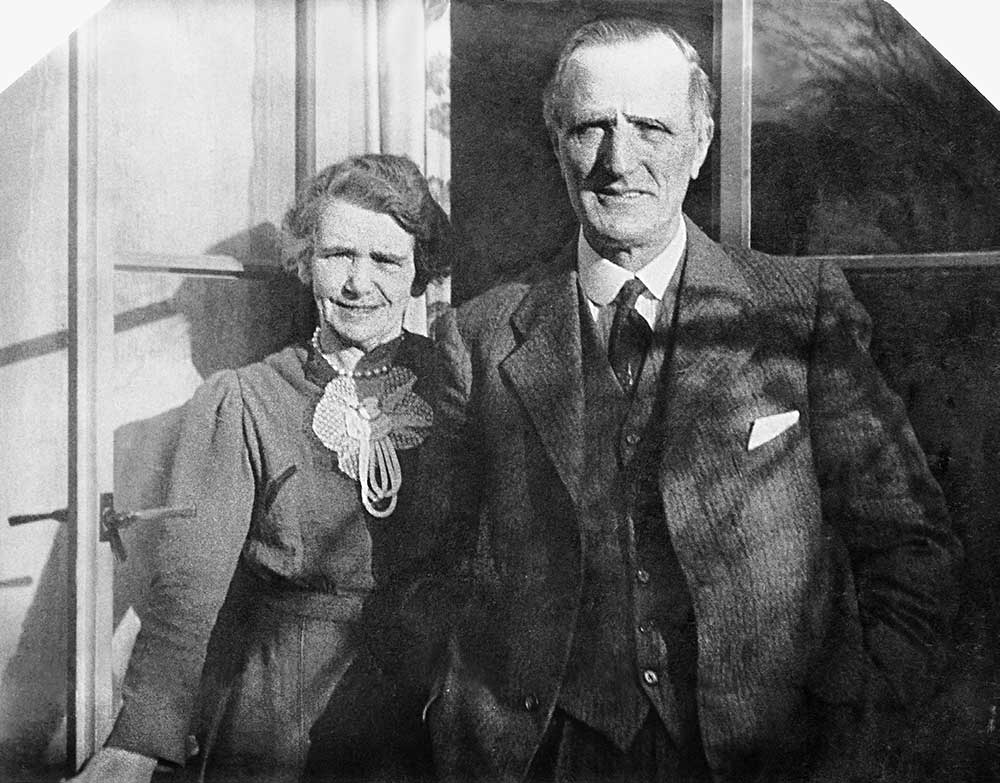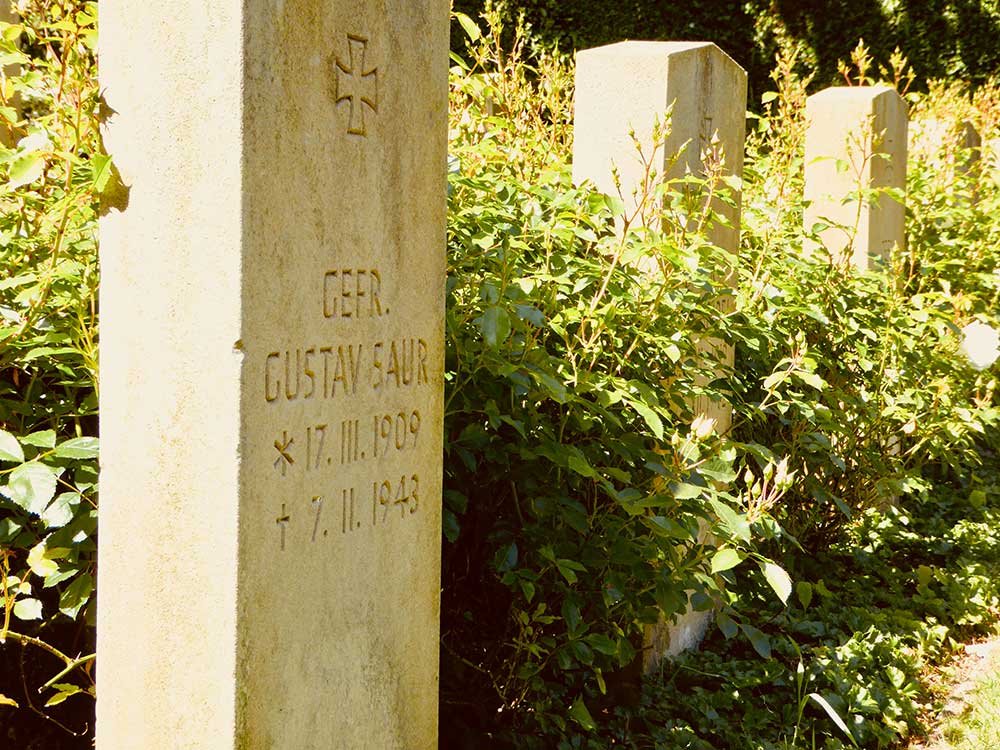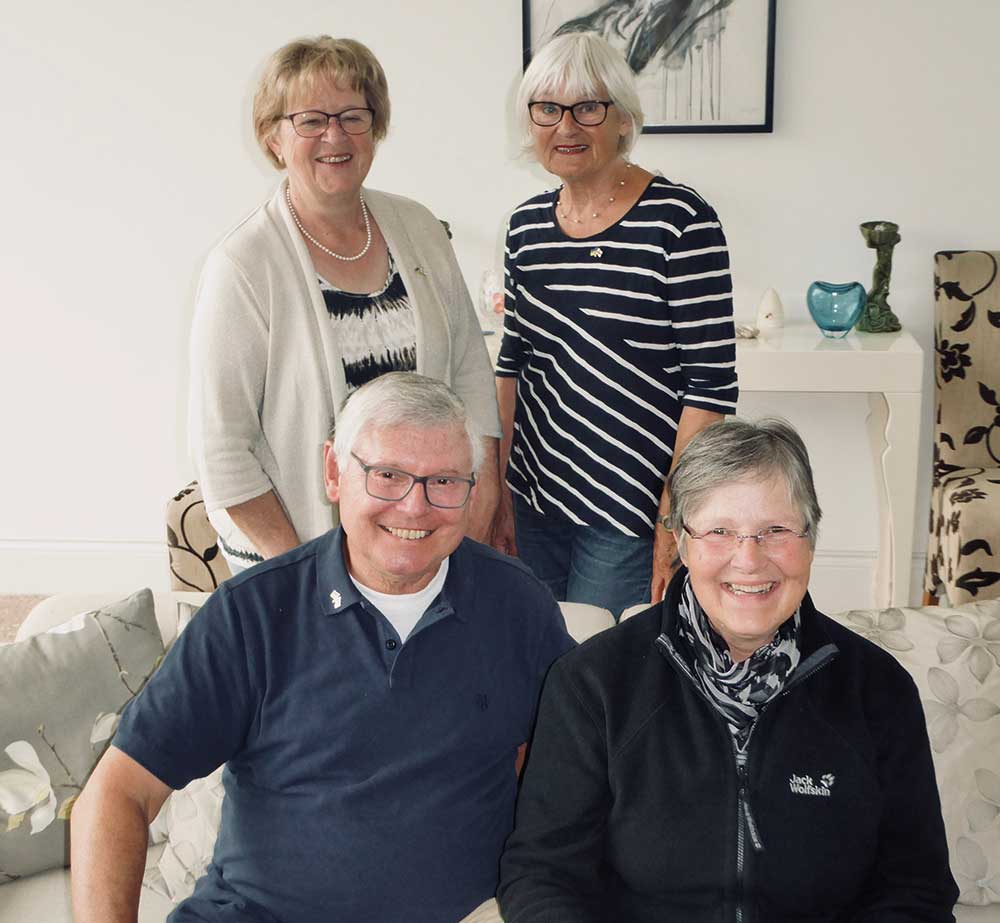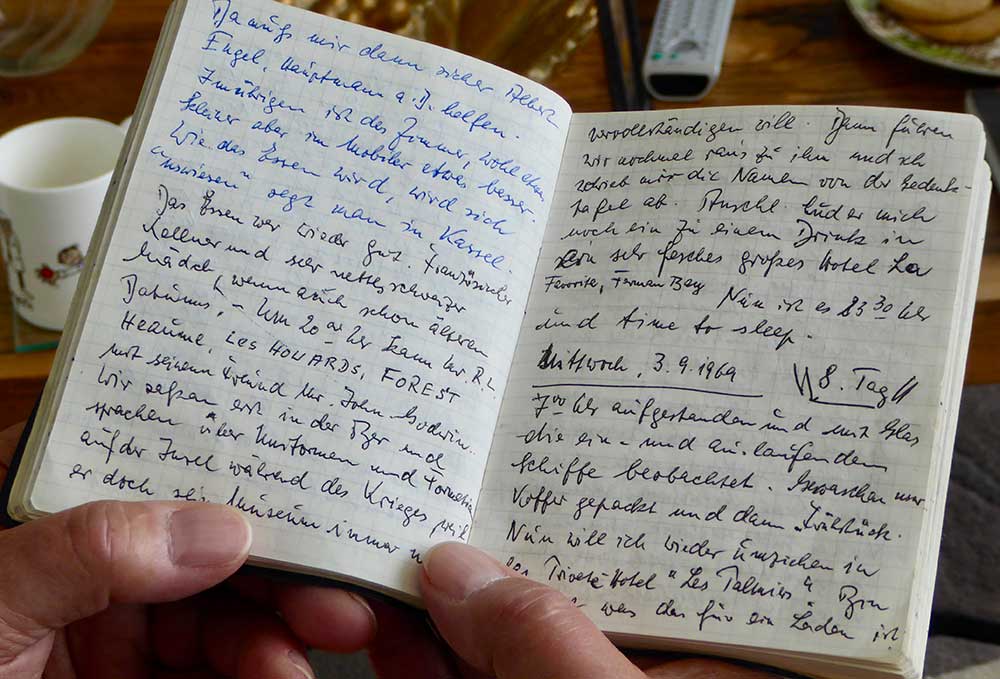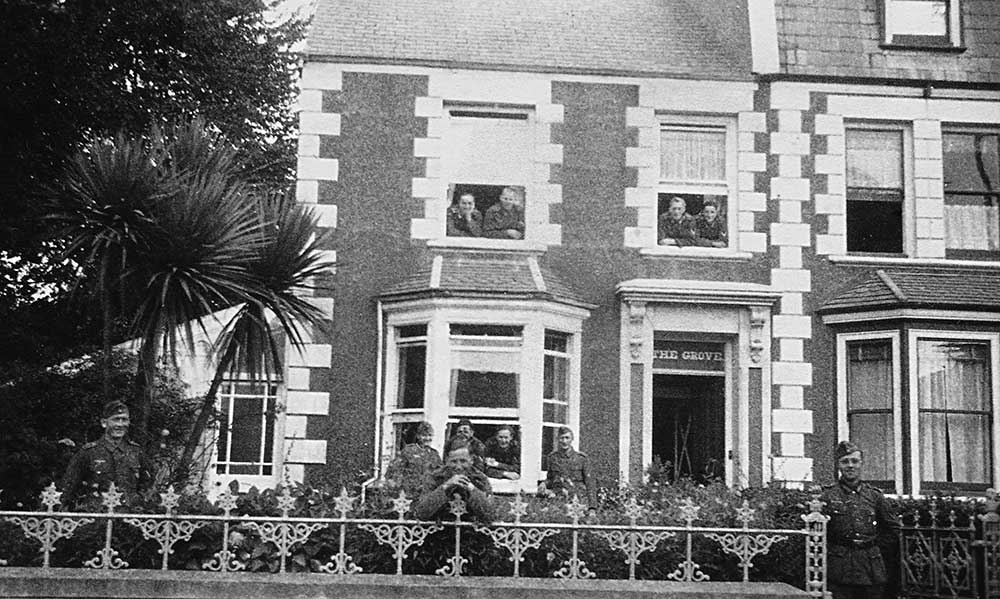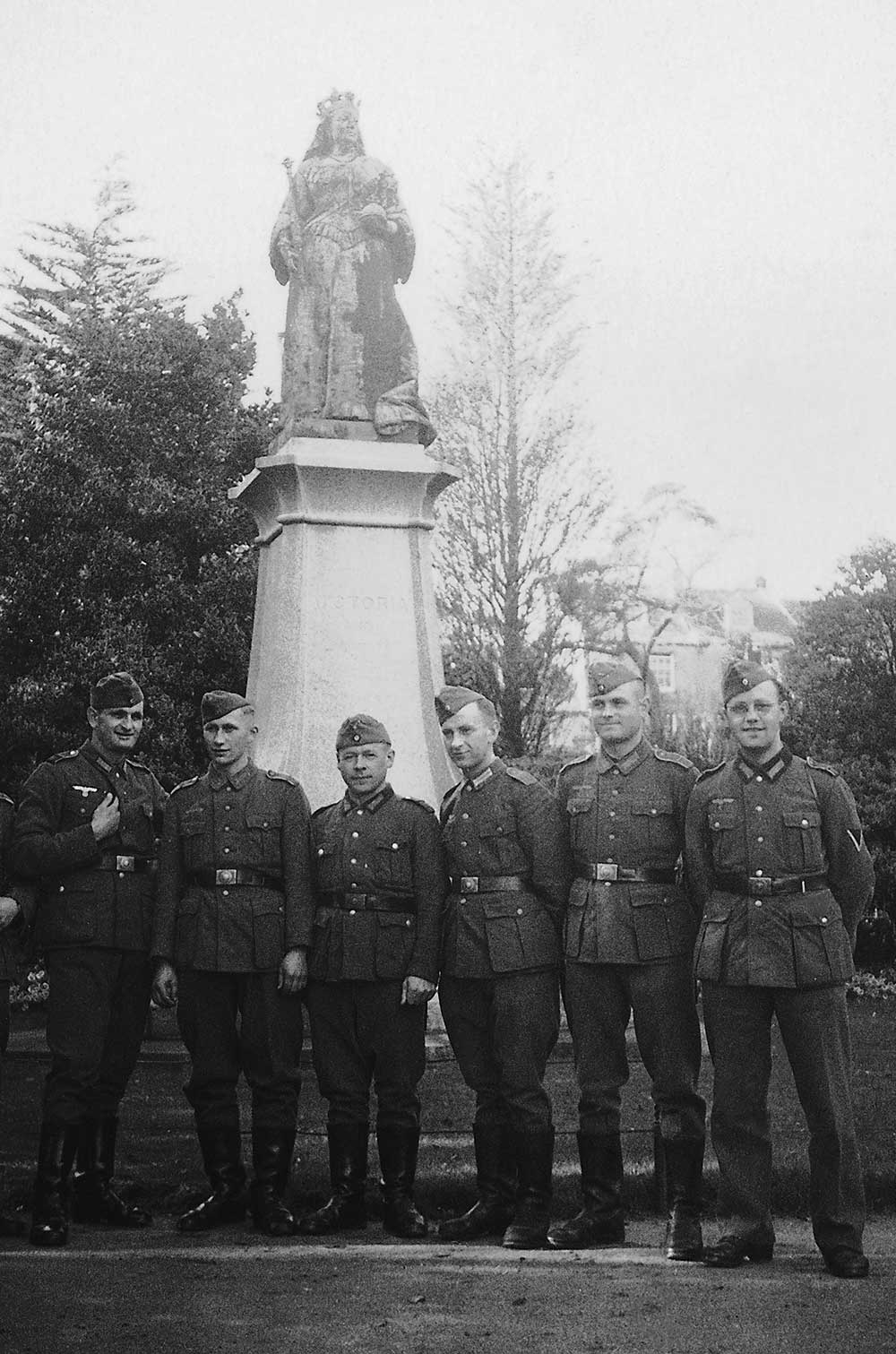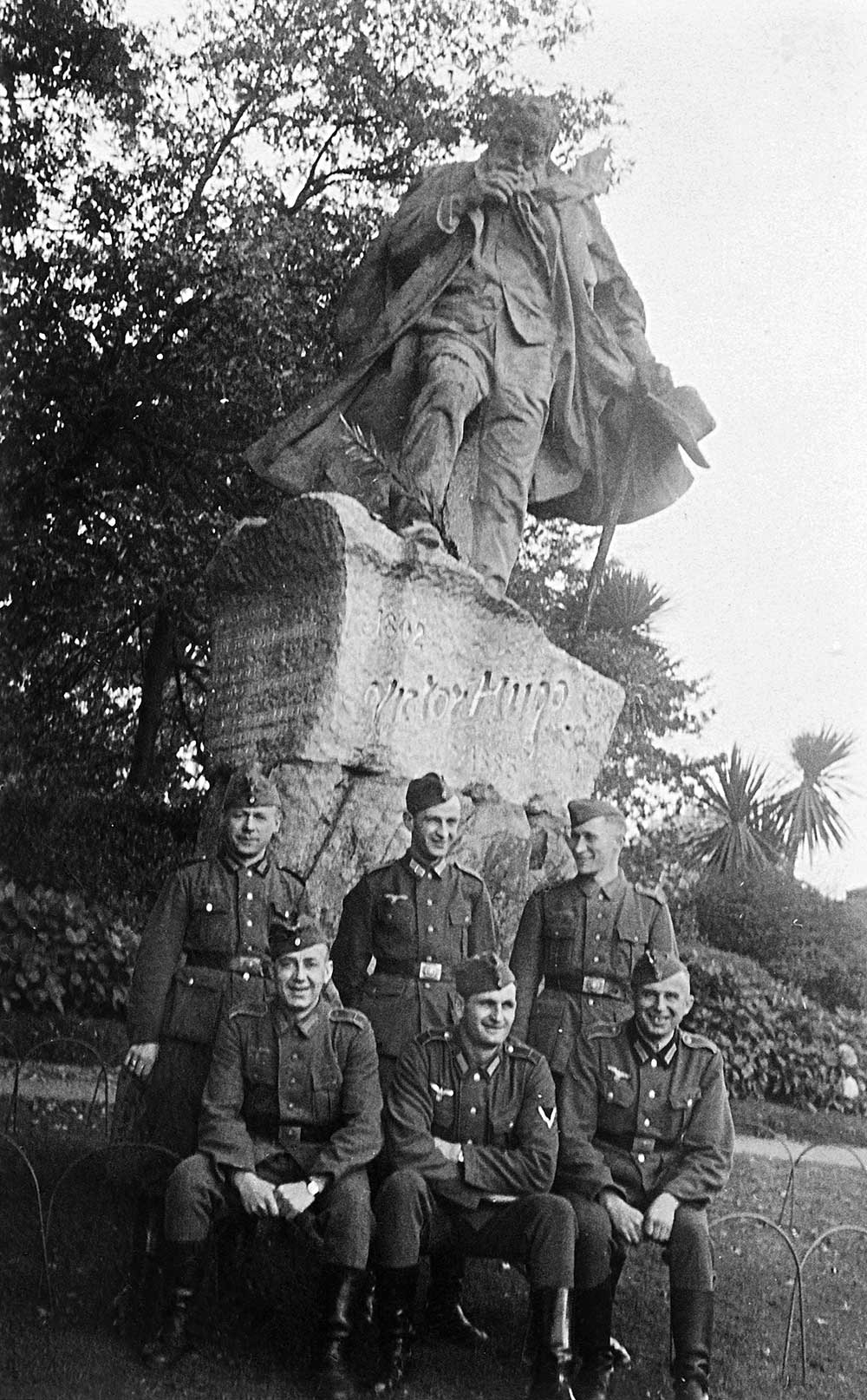Hans-Werner’s story
The recent visit to Guernsey of 30 citizens from Biberach, Germany, who spent a week in the island at the end of May, included Hans-Werner Ast, his wife and his sister, Marie-Luise Casselmann, who had a particularly poignant story and reason for their involvement with the trip, linked to the Occupation and the German military cemetery (and the grave of one fallen soldier).
Hans-Werner’s father, Georg-August Ast, had been stationed in Guernsey throughout the Occupation years and had forged a life-changing bond with an older Guernsey couple who he came to regard fondly as his ‘war parents’, Beatrice and Frank Cochrane.
The visit to Guernsey was intended to see the many places Hans-Werner had heard about all his younger life from his father. He was also keen to discover the grave of his father’s former comrade and good friend, Gustav Saur, who died in Guernsey in February 1943.
With the help of a local guide, it appeared that Gustav Saur found him – Hans-Werner had been standing directly in front of his father’s friend’s grave when he told the moving story, and of his hope to find the grave. The guide said to Hans-Werner, ‘Turn around. It looks like Gustav found you!’
This was an emotional reunion for Hans-Werner and his sister, whose trip was a pilgrimage to the island that they believed had saved their father’s life. This is their father’s story, as written by Hans-Werner;
Hans-Werner’s story
‘Guernsey – the name is part of my childhood memory, as well as the chocolate, the tinned corned beef and the other delicacies that my family received from the island in the post-war years as much longed-for parcels. Even as a young boy, the names of the generous senders, Kid and Frank Cochrane of St Peter Port, Guernsey were familiar to me.
My father often mentioned these names. After having been a POW in England, he came home in 1946. I, born in 1944, could not realise then who the senders with these strange names were.
During later years, when a regular exchange of letters between my father and the Cochranes took place, I heard from my father what the relationship was about. It is the somehow marvellous war story between a German occupying soldier and occupied inhabitants of the island. My father, Georg-August Ast, 1911- 1993, was drafted into the German army and arrived in Jersey at Easter 1941. On 21st June 1941, he crossed over to Guernsey with his unit. He then stayed in Guernsey for the rest of the war. “A blessing for me,” he often said, for in this way he did not have to take part in the fighting and he did not have to live through the terror of this murderous war, which Guernsey was spared. He experienced the nearing end of the war when he saw the planes of the allies flying across the Channel towards the Continent. For his comment, “this may very well be the end of the war”, he was nearly court-martialled, he told me.
After the war ended my father, like the other German occupying soldiers, was taken to England by boat. As a POW, with the status of an interpreter, he spent his time in Leicester. They were treated correctly by the English, especially food was very good (after the soldiers, as well as the islanders, had been starving during the blockade - nutritional deficits were common).
After his release to Germany in 1946, my father could return to his family and for the first time take me into his arms.
He kept saying that it was due to Guernsey and the islanders that he did not lose his life in the war. Of course he had to act as a German occupier, but there had also been the order, “No inappropriate behaviour towards the civilian population”. Therefore he could become really friendly with the Cochranes. In his photograph album he describes them as my “war-time parents”. To me this sounds like a miracle in a time of war and hostility.
In 1969 and 1977 my father, together with my mother, visited the family in Guernsey again. This is documented by the photograph in the Foulon Cemetery at the grave of Beatrice and Frank Cochrane.
Now/today - 2018 - my father has long since passed away, and two photograph albums from the time of the occupation, as well as holiday photographs of Guernsey - now also more than 40 years old -and letters from the Channel Islands have rested in the family archive almost untouched.
All of a sudden I heard on German radio another of those quiz-questions and it raised my attention: Is their a twinning between Biberach and Guernsey? And the answer was: Yes, there is! Biberach and Guernsey! So close to my home Neu-Ulm!? I immediately remembered the chocolate from Guernsey and my father’s stories and photographs. So I got into contact with the Biberach Friends of Guernsey through the internet. A few days later my wife and I went to Biberach to a first meeting with the members of the Guernsey Friends who welcomed us warmly. Of course we were interested to hear what the connection was between Biberach and Guernsey. We were told that during the German occupation on the island 2,000 islanders of English origin were deported to France and Germany - an act of reprisal after Germans in Iran had been interned by the English.
In Germany, the camps were located in Biberach, Liebenau and Laufen, near Salzburg. In an intensive talk, we learned about the whole context, and how much later there developed a kind of twinning between Guernsey and Biberach - another example for international relations, which luckily is continuing to this day.
This dark chapter of the German occupation was new to me and had never been mentioned by my father. Did he not know about this or was he ashamed to mention it? Unfortunately I will never hear the truth …..
The story of my father’s “war parents”, and the friendship between Guernsey and Biberach were and still are proof that our British neighbours have shown great kindness: they could forgive us Germans.
Thank you, Guernsey!’

